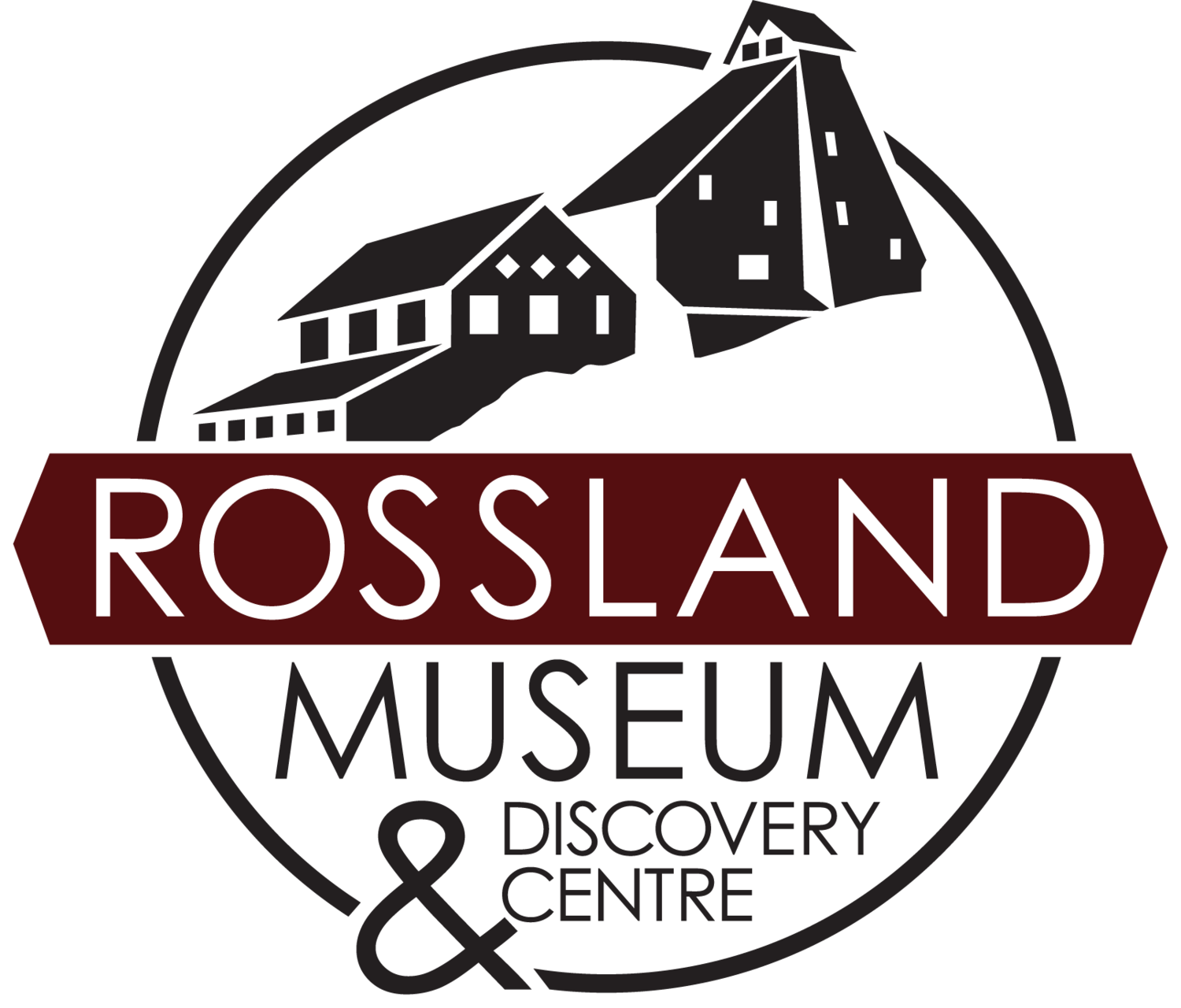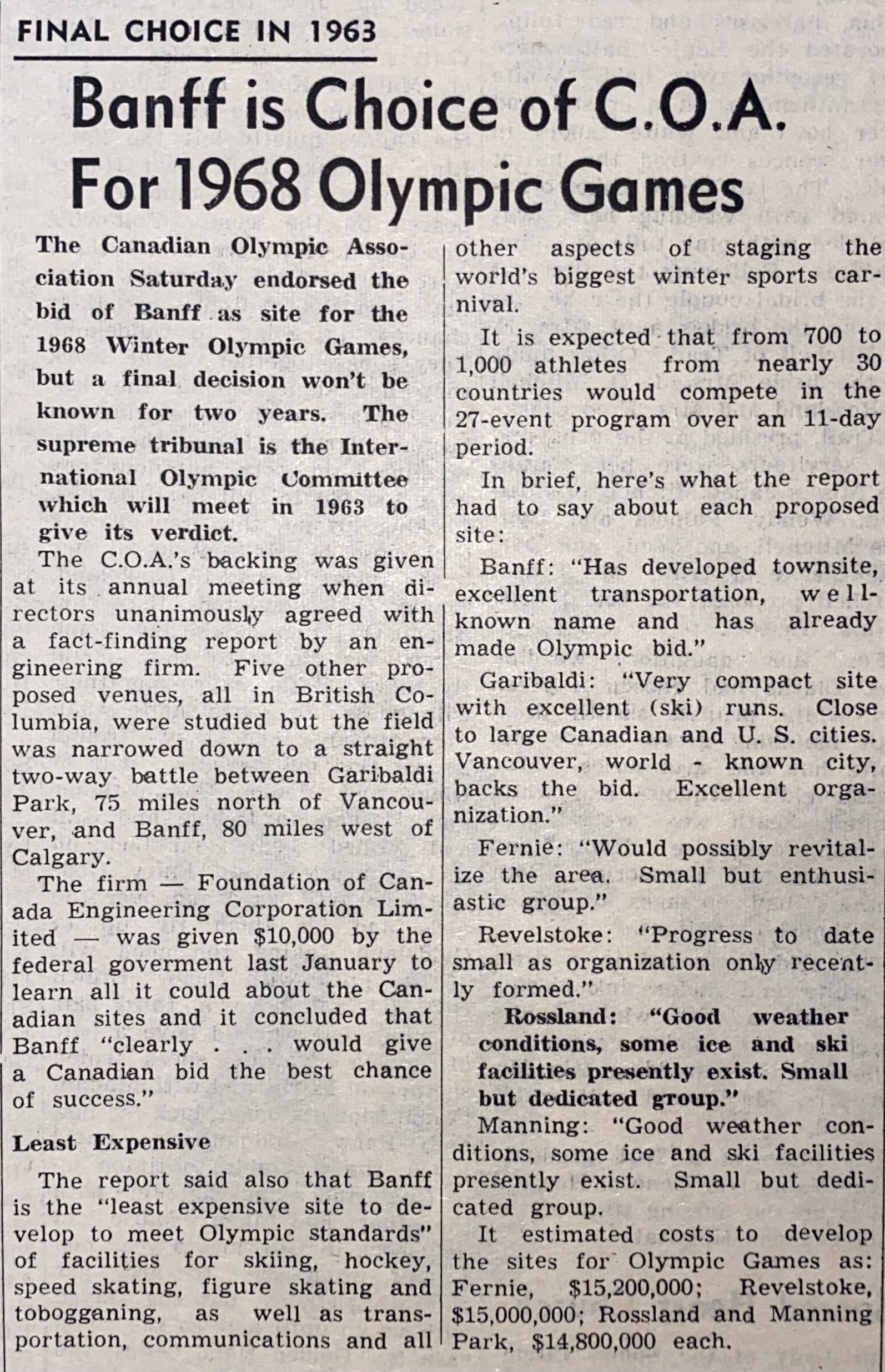Rossland-Trail Olympic Bid
Rosslanders take great pride in Nancy Greene Raine‘s gold-winning performance at the 1968 Olympics in Grenoble, France. Interestingly enough, Rossland had attempted to host the Olympics for that same year.
Following years of prosperity at the Red Mountain ski area, a group of dedicated local skiers made a bold decision to bid for the 1968 Winter Olympics. The Rossland-Trail Olympic Committee argued that the area surrounding Red Mountain would make an excellent Olympic site. According to the committee, the main advantages were: (1) reliable snowfalls; (2) good weather; (3) minimal fog; (4) existing facilities; (5) a modern highway; and (6) previous success hosting ski competitions. An Olympic event in the area would have required an unprecedented level of community involvement and local volunteering. Facilities from Rossland and Trail would have hosted the best athletes in winter sports, and the economic benefit to the area would have been immense. Although Rossland was not successful in its attempt, it was not due to a lack of coordination and effort. The cities of Rossland and Trail, government officials on the municipal, provincial, and federal levels, as well as many local volunteers, put in their best efforts to propose hosting the 1968 Winter Olympics.
MS 35: Scale model of the proposed Olympic site, 1961
The RMDC acknowledges that the name of the “Squaw Basin,” the area between Granite and Grey Mountains, is derogatory and that the term “Squaw” has historically been used as a slur against Indigenous people. The RMDC does not intend to cause offence by using this terminology within its historical context.
A Well-Fought Bid
Rossland’s bid to host the Olympics began in October 1960 when the Rossland Chamber of Commerce set up a temporary committee to oversee the bid and promote Rossland as a suitable Olympic venue. Headed by chairman Booty Griffiths, the committee proposed the “Squaw Basin” area (area between Grey & Granite Mountains) as the Olympic site. They argued that runs could be built to meet Olympic requirements and had space to build an Olympic Village and parking lots for 10,000 cars! To secure the Olympic Games, Rossland first had to beat out five other Canadian cities: Garibaldi, BC, Manning Park, BC, Fernie, BC, Revelstoke, BC, and Banff, Alberta. BC Premier W.A.C. Bennett was eager for British Columbia to host the games and held a meeting with representatives from the four BC sites in November 1960 to discuss each others’ chances of hosting. At this meeting, the premier suggested that the cities form the BC Olympic Committee to help select the best site. Rossland skiers Ches Edwards and Dr. L.H. Nixon as well as Rossland Mayor Harold Elmes and Trail Mayor Harry Shannon were all named to the committee. Edwards and Shannon later travelled to Victoria to present Rossland’s case to the BC Olympic Committee and reported that Rossland’s chances of being selected among the BC sites were excellent.
MS 35: 1961 Photo of Granite and Grey Mountains taken for the Olympic bid survey
By December 1960, the Rossland-Trail Olympic Committee was established, replacing the temporary committee set up by the Rossland Chamber of Commerce. The new committee, headed by chairman Dr. L.H. Nixon, was created to involve the City of Trail in the bid. Rossland would require a number of Trail’s facilities to host events and accommodate travellers if the bid were successful. Trail’s Cominco Arena, for example, would have been used for skating events in addition to Rossland’s arena.
To help choose between the Canadian sites, the Canadian Olympic Association appointed an engineering firm - Foundation of Canada Engineering - to survey each of the five sites. The Rossland-Trail Olympic Committee tasked Ches Edwards with preparing Rossland’s proposed site. In January 1961, Ches Edwards brought engineers J.A.C. Andrews and Burke Corbett to the top of Red Mountain to observe the Grey, Granite, and Kirkup Mountains. The engineers then sent their final report of Rossland’s site, in addition to the other Canadian sites, to the Canadian Olympic Association for final review. The report stated that while all sites had the capacity for ski resorts and competitive events, only three of the five proposed sites were suitable for an Olympic event. Foundation of Canada Engineering deemed Banff, Garibaldi, and Manning Park as the best locations, with Banff being the most favourable option overall.
MS 35: Proposed Rossland-Trail Olympic site, 1961
The concern over Rossland’s Olympic capability was travel and cost. Although Rossland had a modern highway and rail system, the closest international airport was in Spokane, Washington and having the travel hub in another country was obviously not ideal. Regarding accommodation, Rossland and the surrounding vicinity had the capacity for more than 8,000 beds, but only if Spokane contributed as well. This, again, would have been undesirable, as a Canadian-sponsored and financed event. The estimated cost to transform the area into an Olympic site would have been approximately $14,800,000 in 1961, which translated to $135,750,000 in 2022 dollars. Compared to the development cost of Banff, which was $10,000,000 in 1961, it was significantly higher. Foundation of Canada Engineering’s summary of Rossland was “good weather conditions, some ice and ski facilities presently exist. Small but dedicated group.”
The Canadian Olympic Association agreed with the report, choosing Banff as the best chance for Canada’s bid submission to the International Olympic Committee. In addition to being the cheapest site to develop, Banff also had a large, existing townsite, adequate transportation facilities, and a well-known reputation. Despite the best efforts of the Canadian Olympic Committee, however, Banff was not selected to host the 1968 Winter Olympics in the end. Instead, Grenoble, France was chosen by the International Olympic Committee in a close bid of 27 votes to Banff’s 24. The Rossland-Trail Olympic Committee disbanded in October 1962, though many of the members continued to be active in local ski activities.
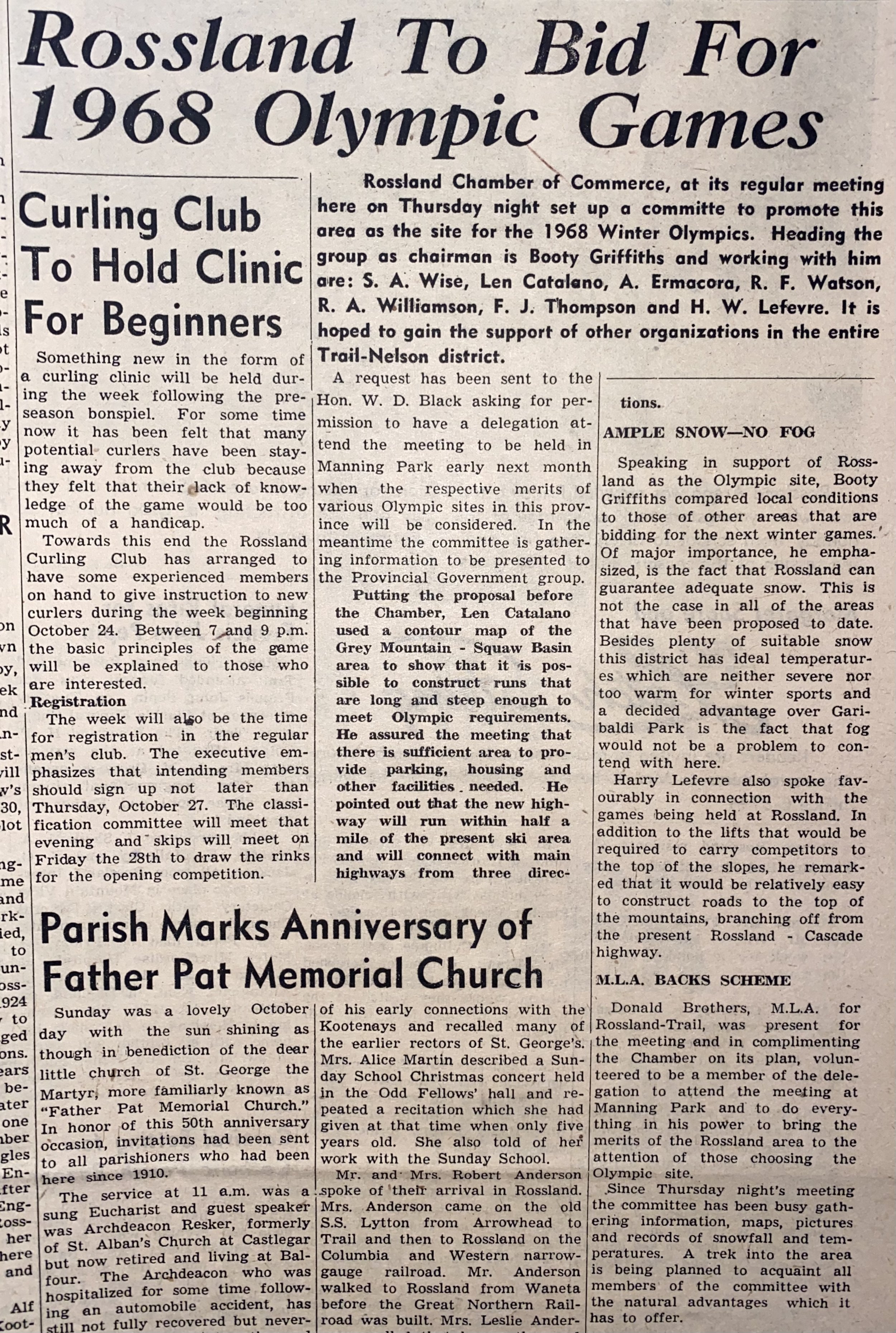
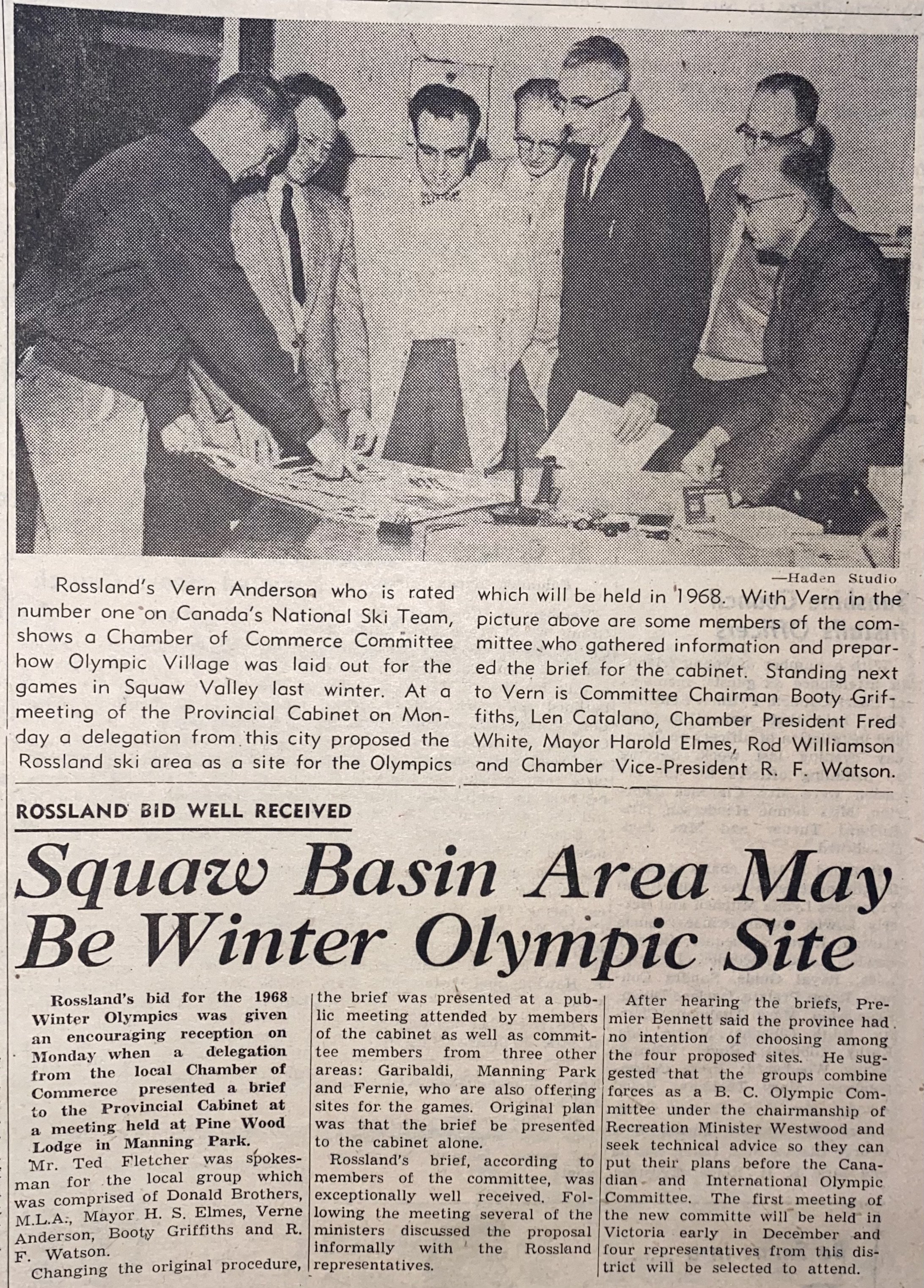
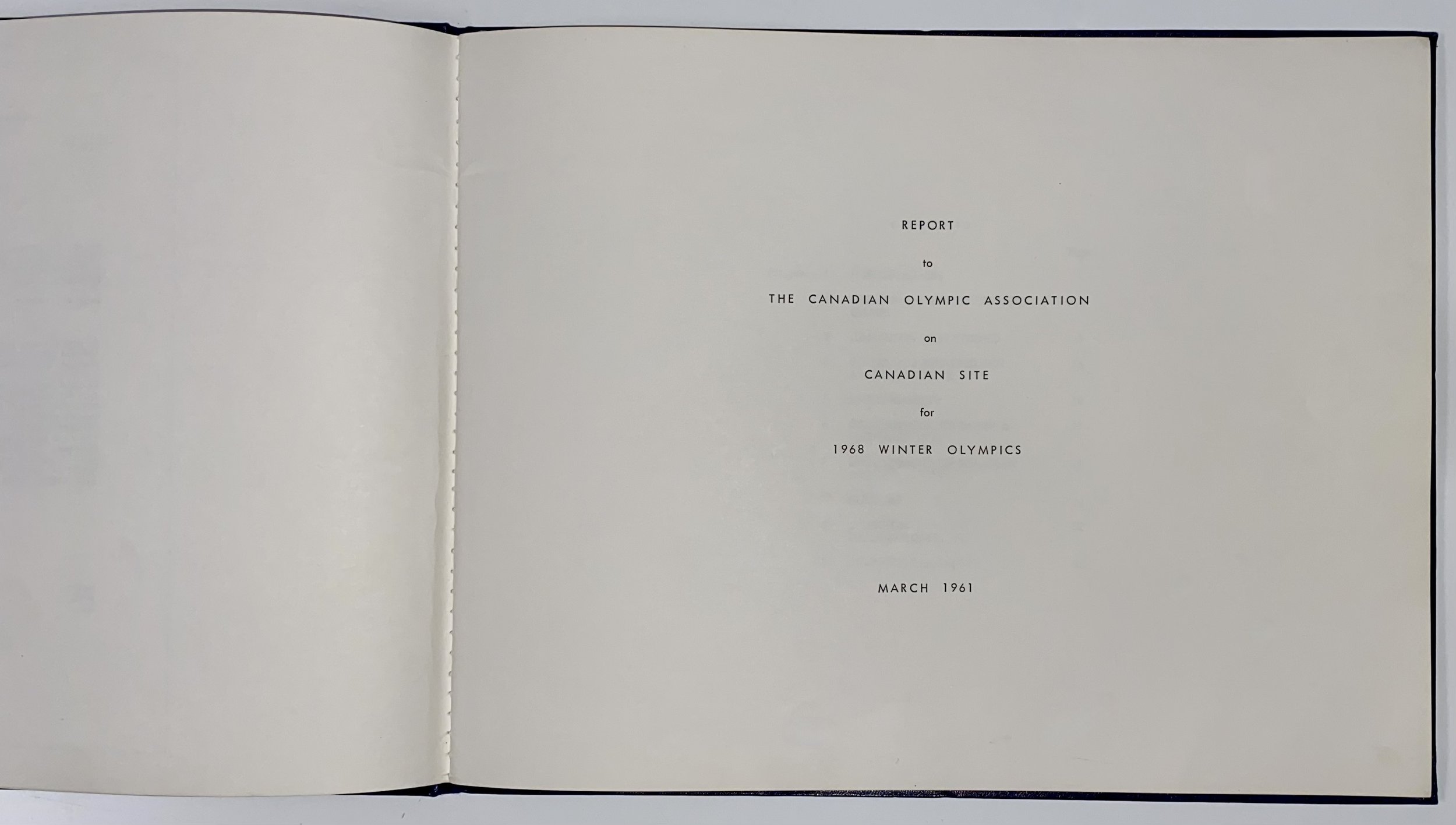
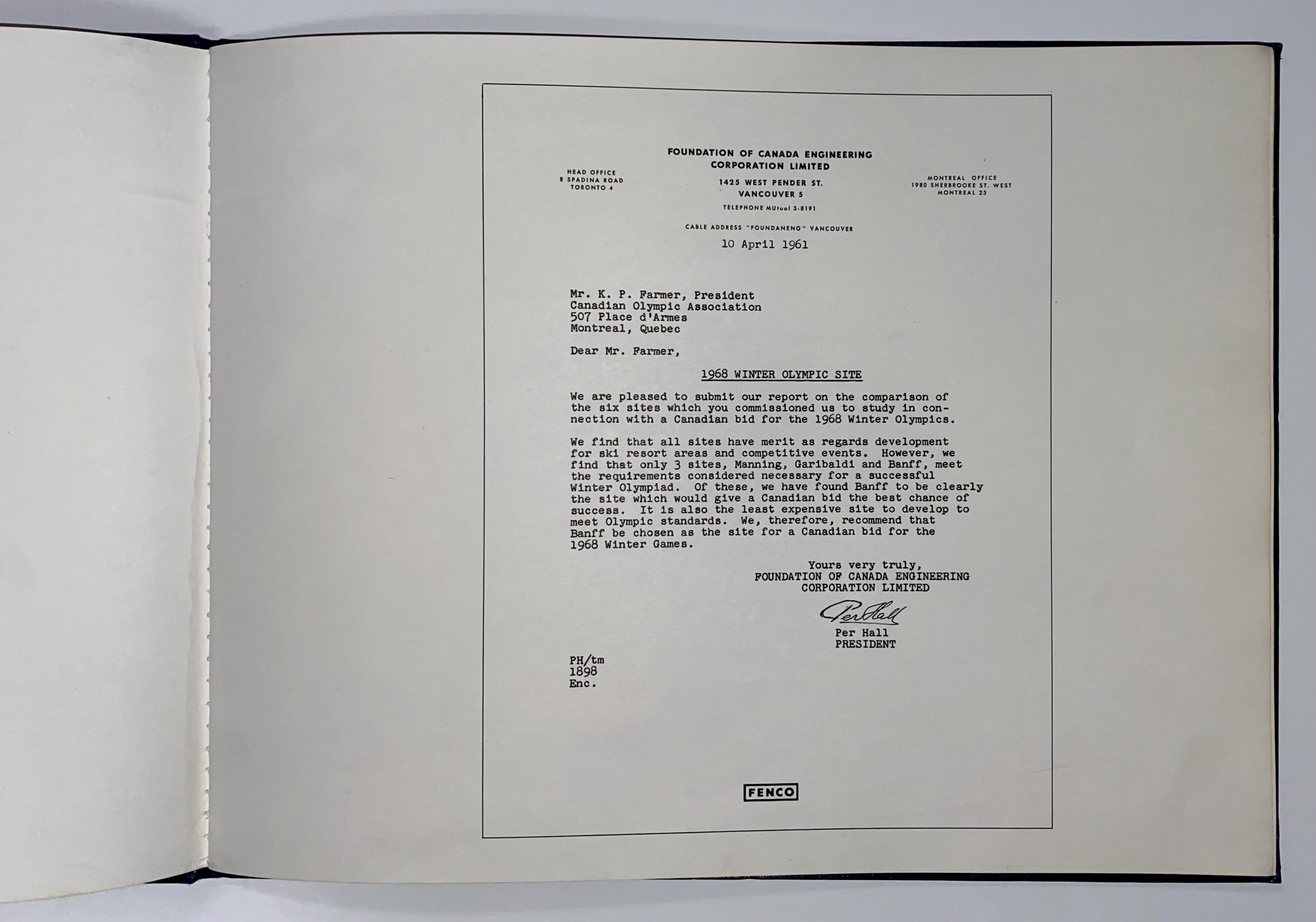
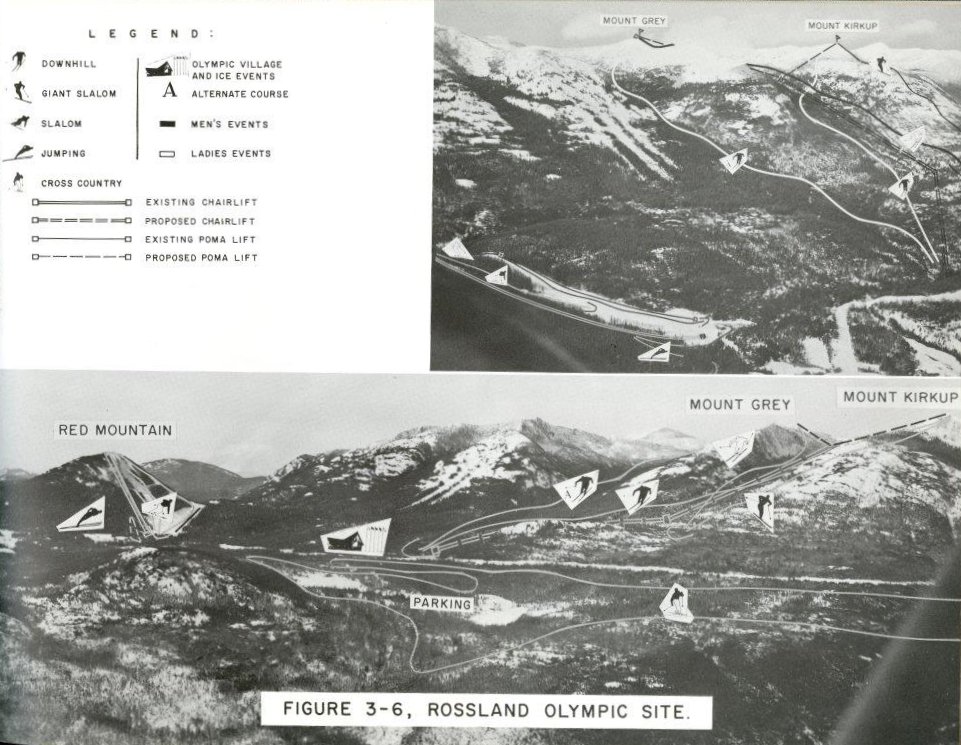
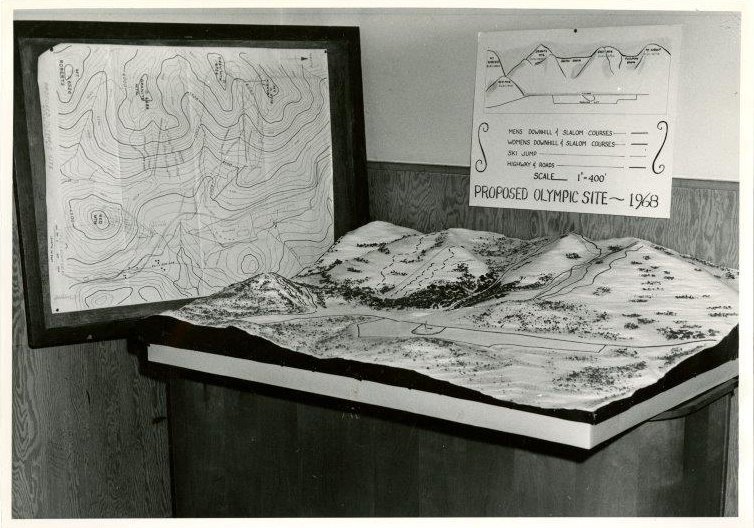
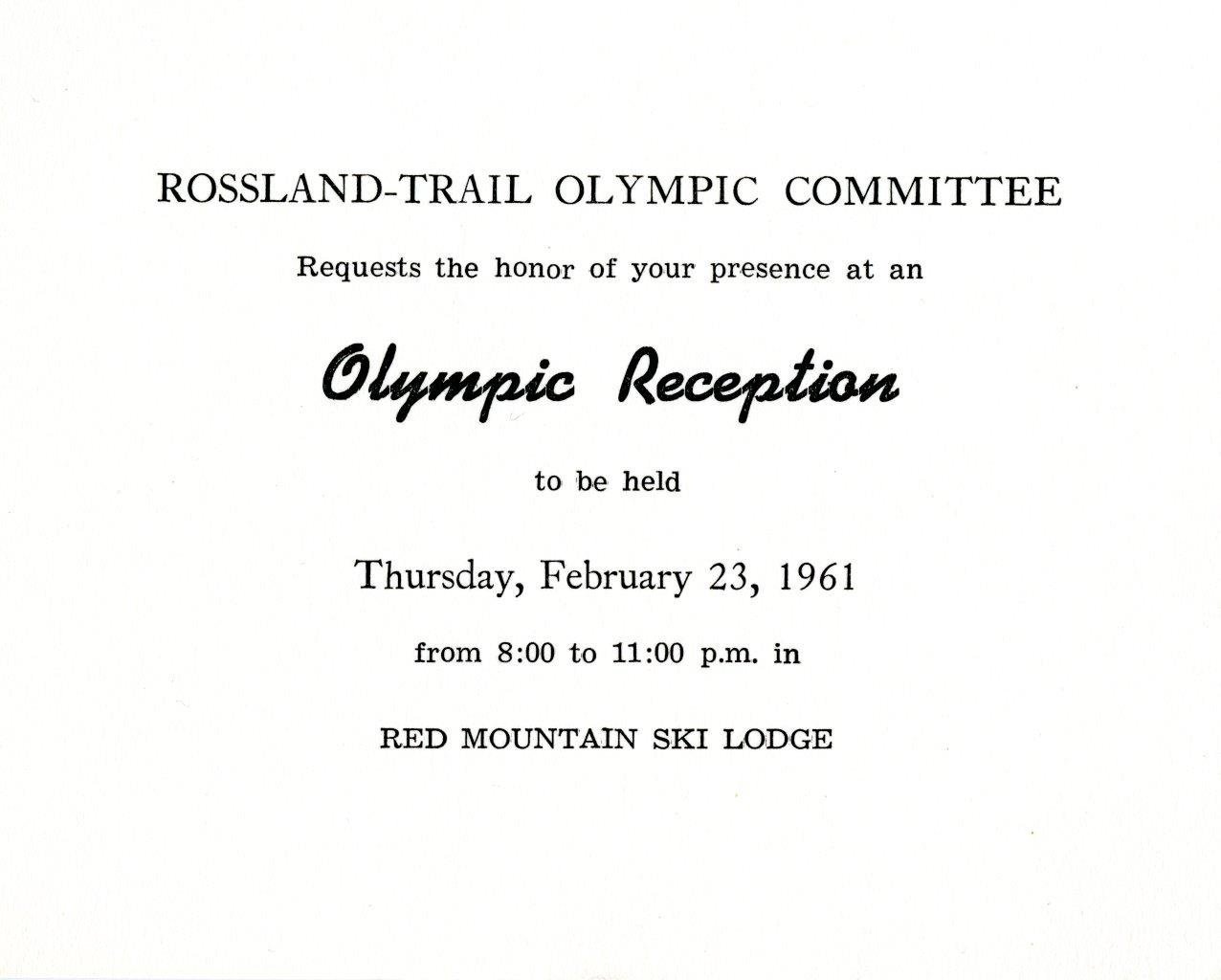
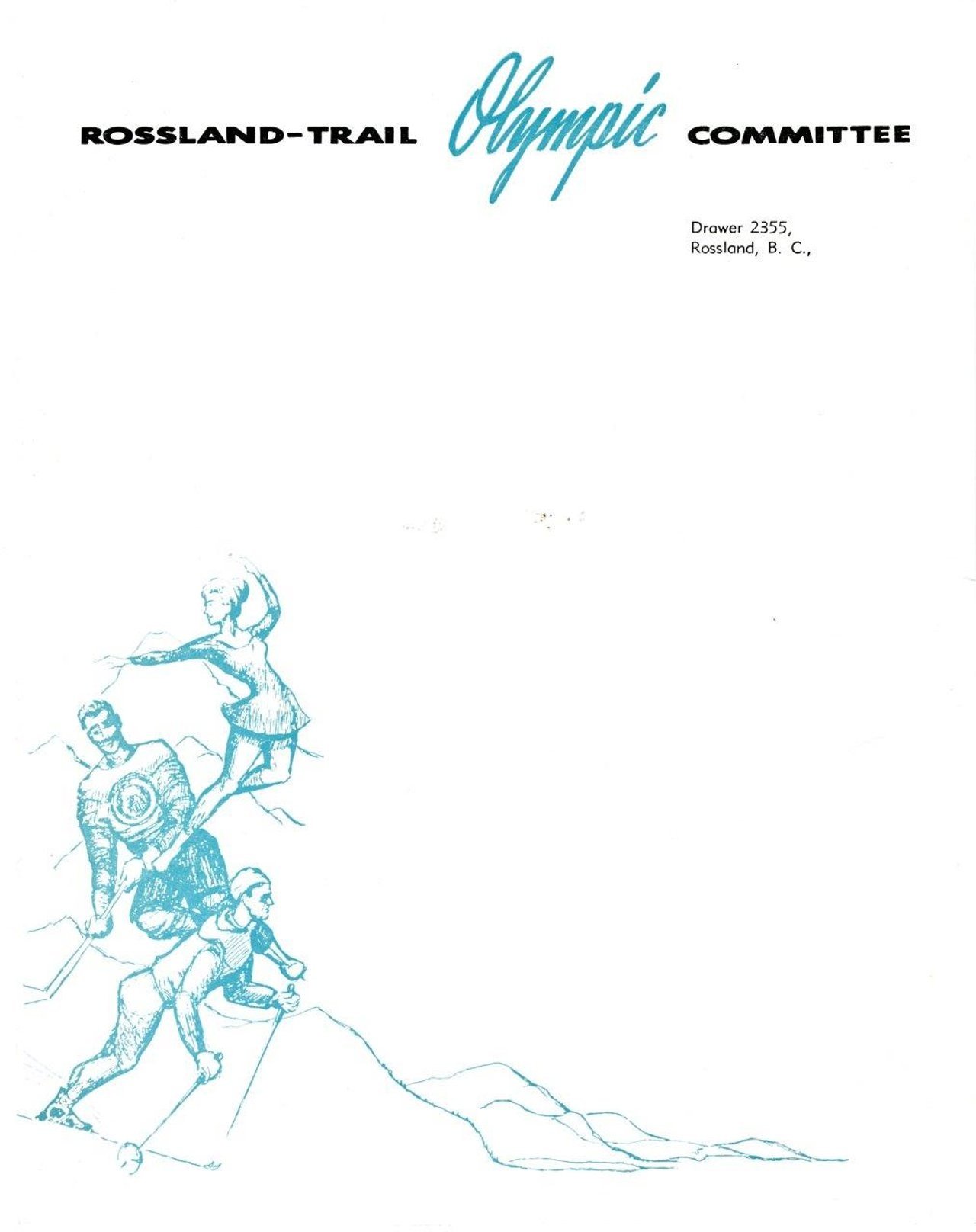
Despite the unsuccessful bid, Rossland still received worldwide recognition during the 1968 Winter Olympics as Rossland’s Nancy Greene Raine won a gold medal in giant slalom and a silver medal in slalom. Although Rossland did not receive a chance to host the coveted sporting event, the city still boasts a rich Olympic history, with many Olympic athletes and coaches, due in large part to the Red Mountain Racers.
For More Information:
Team Canada - Official Olympic Team Website - Grenoble 1968
Contribute your own memories/experiences of the Olympic Bid or Rossland Olympians:
The form below will email us your message. If you prefer to speak to us directly or have other questions or comments about this page, please call (250) 362-7722 or email the archives directly at archives@rosslandmuseum.ca
